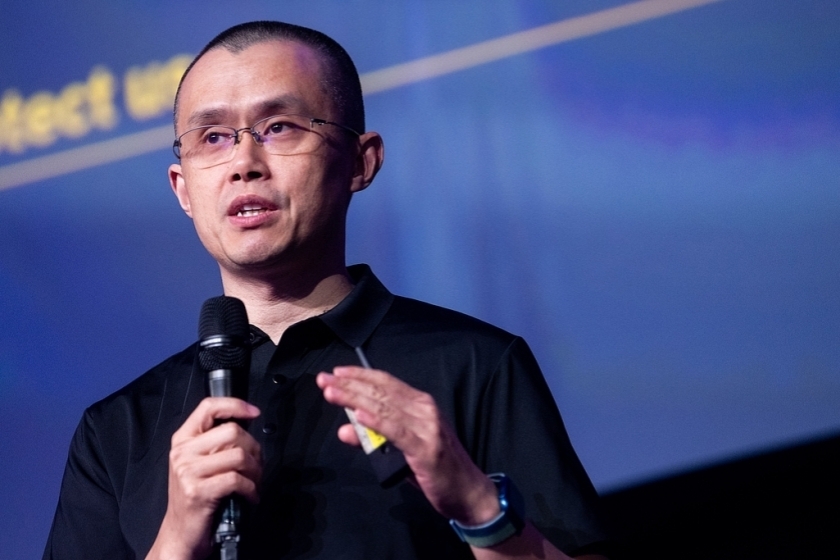Binance and the Trump Connection
By
Leah Rosenfeld
Last updated:
October 29, 2025
First Published:
December 2, 2025

Photo: Caixin Global
A Collision of Two Worlds
Where finance meets political influence
In 2025, the lines separating crypto and politics blurred more than ever before. At the center of this convergence stood Binance, the global exchange giant, and the Trump family, whose growing involvement in digital assets has drawn both fascination and controversy. The revelation that Binance allegedly provided financial support to one of the Trump-affiliated crypto ventures just before the pardon of its billionaire founder sent shockwaves through global markets and raised uncomfortable questions about fairness and influence.
The Rise of a Global Giant
How Binance became too powerful to ignore
Since its inception, Binance built its reputation on accessibility, liquidity, and innovation. From launching new tokens to pioneering decentralized finance platforms, it shaped the direction of the entire industry. But power brings scrutiny. Regulators worldwide have long accused the exchange of skirting compliance rules to maintain its market dominance. By 2025, it had evolved from a trading platform into a geopolitical actor whose decisions could sway markets and even governments.
The Pardon That Sparked Debate
A political move with financial echoes
When the U.S. administration granted clemency to Binance’s founder, it was framed publicly as a gesture of economic diplomacy. However, the timing of that decision—coinciding with reported financial interactions between the exchange and a Trump-linked digital asset venture—raised immediate suspicion. Many wondered whether crypto had entered a new era where access to political figures could rewrite the rules of regulation and enforcement.
Behind the Scenes of Influence
Tracing the money and the message
The alleged transactions between Binance and Trump-affiliated entities were complex, routed through intermediaries and offshore accounts. Insiders described it as part of a broader effort to “stabilize relationships” ahead of new U.S. crypto policy announcements. Whether it was strategic or coincidental, the optics were powerful: the world’s largest exchange appearing to support the family of the country’s most polarizing political figure.
The Impact on Market Confidence
Traders caught between trust and doubt
News of the connection sent ripples through the crypto community. Some investors viewed it as proof that major players still hold disproportionate power over decentralized markets. Others shrugged, accepting it as part of the maturing process of an industry learning to coexist with real-world politics. The event also triggered short-term volatility, as traders feared regulatory backlash or public disillusionment with centralized exchanges.
Binance’s Balancing Act
Survival through adaptation and narrative control
Binance responded by reaffirming its commitment to transparency and regulatory cooperation. The exchange emphasized that its global footprint required partnerships with governments and that its relationship with any political entity was purely transactional. Behind closed doors, however, sources suggested that Binance had to engage in delicate diplomacy to maintain operational licenses in key jurisdictions. The company walked a fine line between compliance and autonomy, a balance that continues to define its identity.
The Global Regulatory Domino Effect
How one controversy reshaped policy discussions
The fallout from the Binance-Trump connection reignited global debates about crypto regulation. Lawmakers in Europe and Asia used the incident to argue for stricter oversight of exchange operations and clearer boundaries between political entities and private financial platforms. The U.S. Securities and Exchange Commission faced renewed pressure to investigate large token movements linked to political fundraising. What had begun as a financial headline became a full-blown policy catalyst.
Public Perception and Media Warfare
When narrative becomes the real currency
The public reaction to the controversy revealed how narrative control is as valuable as liquidity in modern crypto. Supporters of both Binance and the Trump family framed the partnership as innovation and progress, while critics saw corruption and collusion. In the age of social media, the truth became secondary to perception, and the battle for trust played out in headlines, tweets, and community forums rather than in courts.
Lessons for the Exchange Industry
Transparency is the new competitive edge
Other major exchanges watched the controversy unfold with unease. The scandal underscored how even whispers of political favoritism can undermine credibility in a market built on decentralization. To rebuild trust, several platforms accelerated their public proof-of-reserve initiatives and strengthened compliance disclosures. Transparency, once a regulatory demand, became a brand necessity.
The Future of Power in Crypto
A warning and a window into what’s coming
The Binance-Trump saga is more than a fleeting scandal—it is a glimpse into the next phase of crypto’s evolution. As digital finance becomes inseparable from politics and global power, exchanges will face moral and strategic crossroads. They can either embrace genuine transparency or risk becoming symbols of the very centralization the crypto movement once sought to escape. The events of 2025 remind us that influence always comes with a price, and in the world of digital currency, that price is trust.
Popular articles
Subscribe to unlock premium content
Disney’s Timeless Magic and How the Entertainment Giant Continues to Shape Culture and Innovation

Imran Khan’s Economic Missteps Amid Political Chaos in Pakistan

The Philippines’ Digital Shift How Remittances and BPO Are Fueling Growth

Disney’s Timeless Magic and How the Entertainment Giant Continues to Shape Culture and Innovation

Imran Khan’s Economic Missteps Amid Political Chaos in Pakistan

Disney’s Timeless Magic and How the Entertainment Giant Continues to Shape Culture and Innovation









